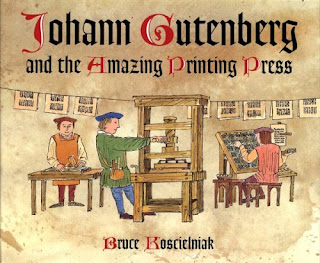Prior to the 15th century, it was very difficult for the average person to own or even come into contact with the written word. Johannes Gutenberg changed that with his invention of the Gutenberg Press. This allowed printing to be done more easily, inexpensively, and while printing had existed prior to Gutenberg's innovation, his techniques were so extraordinary that some of the technologies he employed were still in use as late as the twentieth century.
Gutenberg's press had a profound influence - for the first time in history, the masses could read the Bible for themselves. Science, literature, political ideas, and even art could now be widely distributed and read by people who would never have come in contact with the writers or artists - knowledge was spread, the church changed, and political movements were born. Without the technology that Gutenberg invented, even the American Revolution may not have taken place as it did. Jefferson was able to read and share ideas with his compatriots in Europe. Franklin printed leaflets, flyers, newspapers, and proclamations which were shared far and wide in the "new world". Reading became an important skill, allowing peasants and aristocrats alike to exchange ideas and share a common knowledge and culture.
The Gutenberg Bible, which was the first work to roll off the presses, was the first Bible ever to be made widely available. Prior to this, Bibles were available only to the clergy and the very wealthy, and the church depended on the clergy to provide the Word of God to them.
Because of the printing press, Martin Luther's theology and sermons spread quickly, allowing his ideas to spur major changes in the church and making his passion to allow people to read the Bible in "the language they understood" (Schneider 56) possible. Luther's own translation of the Bible was soon published and "in the regions where the Reformation had established itself on a solid footing, education of the laity and literacy rates made enormous gains." (Schneider 56) Literacy rates in Germany, Europe, and the New World grew quickly and this changed forever the relationship between populations and their rulers, between the faithful and the "church" and gave rise to the exchange of new ideas and the demise of the Catholic Church as the sole authority and rule under which entire societies lived.
Yes, there have been many inventions that have changed the course of human history. Until the invention of the radio, television, and most recently the Internet, however, no other invention in history allowed for vast public dissemination of knowledge. Over three-hundred years passed before the technologies that eventually developed into "radio" were invented - an incredible span of time during which the press reigned supreme. Did Gutenberg set out to change the world? We'll probably never know, but his invention, the greatest of the 15th century, certainly did just that.



Well done, Jennifer!
ReplyDelete